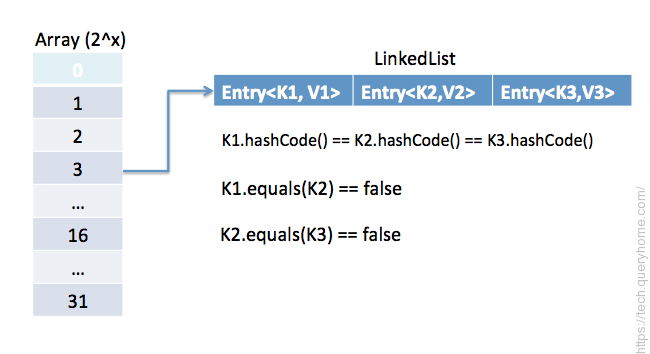HashMap stores key-value pair in Map.Entry static nested class implementation. HashMap works on hashing algorithm and uses hashCode() and equals() method in put and get methods.
When we call put method by passing key-value pair, HashMap uses Key hashCode() with hashing to find out the index to store the key-value pair. The Entry is stored in the LinkedList, so if there are already existing entry, it uses equals() method to check if the passed key already exists, if yes it overwrites the value else it creates a new entry and store this key-value Entry.
When we call get method by passing Key, again it uses the hashCode() to find the index in the array and then use equals() method to find the correct Entry and return it’s value. Below image will explain these detail clearly.

The other important things to know about HashMap are capacity, load factor, threshold resizing. HashMap initial default capacity is 16 and load factor is 0.75. Threshold is capacity multiplied by load factor and whenever we try to add an entry, if map size is greater than threshold, HashMap rehashes the contents of map into a new array with a larger capacity. The capacity is always power of 2, so if you know that you need to store a large number of key-value pairs, for example in caching data from database, it’s good idea to initialize the HashMap with correct capacity and load factor.
